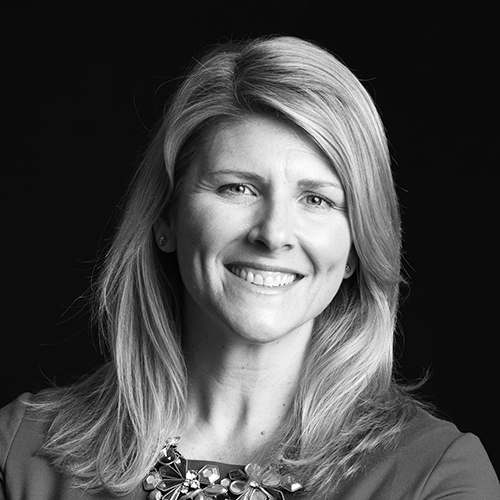Lisa McCraw loves a good challenge—and she faces many. As assistant general counsel of litigation at Deere & Company, she’s charged with defending the iconic American company against cases ranging from product liability cases to toxic tort cases and general liability matters. Her group of attorneys, support staff, and claims professionals works around the clock to manage risk and add value to the company. Here, she shares four ways an in-house attorney can guide her business and make a significant impact in a large organization.
CULTIVATE RELATIONSHIPS
Twenty-seven years working in law firms, insurance companies, and a Fortune 100 company have shown McCraw just how valuable relationships are in any professional environment. “You have to build trust with people in various departments, and your own team has to be aligned to the overall purpose of the company, if you expect to get anything accomplished,” she says.
“You have to build trust with people in various departments, and your own team has to be aligned to the overall purpose of the company if you expect to get anything accomplished.”
The lesson hit home for McCraw when she was negotiating contracts and advising Deere’s supply management team. There, she was able to leverage her overall knowledge of the company and break down departmental silos. This helped her procurement colleagues write appropriate contract language as she developed templates for supply agreements and implemented a contract management system. In the litigation context, building relationships internally is valuable for ensuring that the business manufactures safe products.
GROW YOUR TEAM WITH DIVERSE SKILL SETS
Two of McCraw’s attorneys are trained mechanics. Another internal lawyer worked as an engineer before attending law school. While that may sound strange, it’s part of the unit’s secret to success. “Our team knows and understands how John Deere products work and how our customers use our products,” she explains.
McCraw says skills like these guide her choices when new positions open—factored into previous hiring decisions.
When she does have the opportunity to hire someone, McCraw looks to complement the skills of her current team. “I want people with the skills needed to address the whole scope of issues that a corporate entity like Deere may encounter,” she says. Because she previously worked for law firms that represented corporations like Deere, McCraw appreciates that lawyers with litigation experience understand how to work alongside and manage outside firms.
Deere’s internal team does not work with firms in the traditional manner. Instead of sending work out and waiting for results, Deere & Company’s legal team is engaged at every step. At the same time, McCraw and other leaders work with firms and with their internal lawyers with an eye on talent development. By identifying, empowering, and training future leaders, they ensure the long-term success of the department and the company.
SPREAD THE MESSAGE
The Deere legal team has developed expertise in many areas. McCraw works with her peers to export those best practices to the company’s legal teams around the world. Deere’s overseas teams act as generalists and must support the company without some of the resources enjoyed by those who sit in the Moline, Illinois, headquarters.
To address and remedy this challenge, Deere’s global law services group formed several “communities of practice” internationally designed for information sharing and mutual learning. Each community of practice has its own charter, and each group meets at least quarterly.
Since 2015, McCraw has led one such community, which focuses on litigation. Other communities at Deere address global contracts, environmental issues, trade regulations, and corporate governance. As part of the litigation community, McCraw has helped her international colleagues improve processes like case tracking and reporting.
In 2015, the global law services group launched a global partners program that pairs employees that work in different regions and practice groups. McCraw’s first global partner, an attorney in Brazil, met with her once a month via phone or Skype. “It is an extremely rewarding experience to get to know people on a more personal level and to understand the cultural differences in our work. We really tried to learn from each other,” she says, adding that many Deere employees participate in job swapping programs. McCraw spent a summer in Singapore to work with and support Deere’s local marketing group.
Deere & Company by the Numbers
179
years in business
1918
sold first tractor
$37.7B
revenue
67,000
employees
97
Fortune 500 listing
9
CEOs since inception
DO MORE THAN THE MINIMUM
When McCraw started at Deere in 2002, her colleagues formalized an in-house pro bono program. McCraw led the committee from 2008 to 2015, and she now serves as a member. Today, she encourages everyone she works with to participate in the program. And the work isn’t limited to attorneys—paralegals and other support staff give back by offering their time and expertise free of charge. The efforts fit in well with the overall company philosophy. “Deere has a long history of service and volunteer work,” McCraw says. “Deere’s higher purpose is to feed, clothe, and shelter the world. And I’m glad that our legal team is an important part of fulfilling that mission.”


